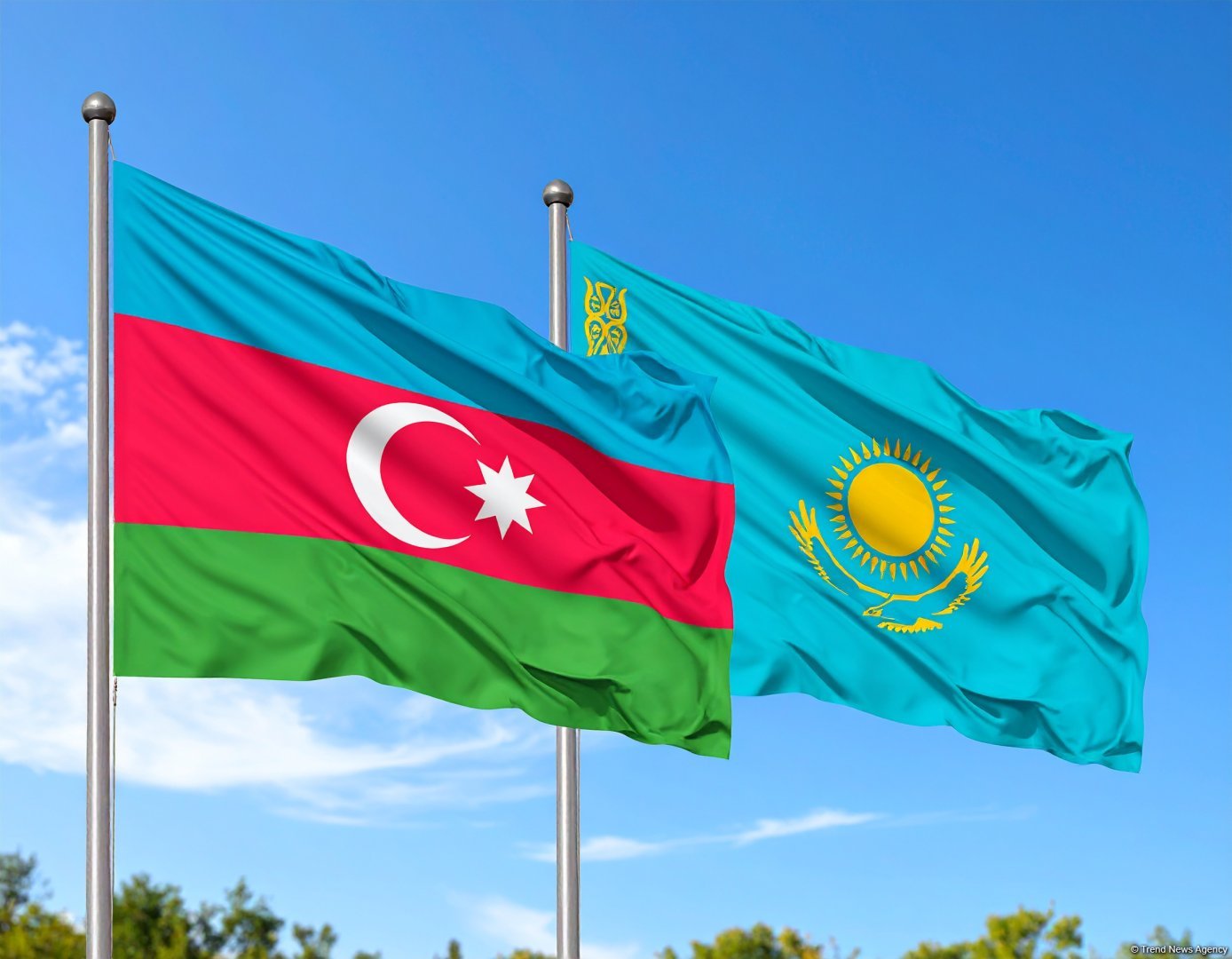BAKU, Azerbaijan, October 17. Kazakhstan and Azerbaijan continue to strengthen their partnership through high-level dialogue and cooperation in the areas of logistics, investment, and green energy development, the expert for international relations, Tair Nigmanov told Trend.
"The heads of state maintain regular high-level dialogue. Cooperation within the Organization of Turkic States (OTS) also shows positive dynamics - an official summit is held annually, usually in the fall, as well as informal meetings in the spring or summer. The presidents communicate regularly during these events, as well as during bilateral visits, telephone conversations, and on the sidelines of other platforms, including the CIS," Nigmanov said.
He noted that Kazakhstan supports a peaceful settlement of the conflict between Armenia and Azerbaijan and the signing of a peace declaration. An important factor, he said, is that Kazakhstan has also contributed to the peace process.
“In particular, in 2024, a meeting of foreign ministers was held in Almaty as part of the preparation of a peace agreement. Overall, I would describe the dynamics as very positive,” the expert said.
According to him, key achievements in bilateral cooperation can be identified in several areas.
"Firstly, there is a trilateral agreement between Kazakhstan, Azerbaijan, and Uzbekistan on the development of green energy. Over the past two years, a number of agreements have been signed between banks and investment funds, in particular, a strategic partnership agreement between Samruk-Kazyna and Azerbaijan Investment Holding. Active negotiations and agreements in the economic and investment spheres are continuing. It is worth noting the agreement on the phased increase in the volume of Kazakh oil transit through the territory of the Republic of Azerbaijan, in which the Kazakh company KazMunayGas and the Azerbaijani state oil company SOCAR participated," Nigmanov noted.

According to him, the positive dynamics of relations are actively filled with concrete economic content.
"As for the Middle Corridor, Kazakhstan is seeking to diversify its logistics flows. When it comes to oil, more than 90 percent of Kazakhstan's oil is transported through the Caspian Pipeline Consortium, which runs through Russia, and is then shipped from the port of Novorossiysk. However, geopolitical and economic instability is increasing, and uncertainty remains regarding the pressure of sanctions on Russia," the expert noted.
Nigmanov added that there have also been cases of oil shipments being suspended due to natural causes, such as storms and other force majeure events. In this regard, Kazakhstan is interested in reducing its unilateral dependence and developing alternative supply routes.
"In addition, when it comes to non-oil commodities, economic and geopolitical instability also have a negative impact. Sanctions, restrictions, and embargoes imposed between the Russian Federation and the countries of the EU and the U.S. force us to constantly look for alternative supply routes for a wide variety of goods, from food to consumer goods. In this context, the Middle Corridor plays an important role," he noted.
According to him, Kazakhstan and Azerbaijan undoubtedly play a central role in realizing the potential of the Middle Corridor.
"There are alternative, more southerly routes through Kyrgyzstan, Uzbekistan, and other countries. However, in my opinion, Kazakhstan will remain key here, as it requires crossing only one border rather than several. In addition, most of the route through Kazakhstan runs through flat steppes and semi-deserts, which greatly simplifies the construction of railways, unlike the southern alternatives, where complex mountainous terrain seriously complicates logistics. At the same time, Azerbaijan and the port of Baku play an important role in the western direction," Nigmanov said.
The expert noted that Azerbaijan plays a key role in the Organization of Turkic States.
“The country seeks to act as a link between eastern states such as Kazakhstan and Uzbekistan and western states, in particular Türkiye. In this context, the Zangezur corridor, which is regularly mentioned at OTS events and during bilateral meetings, is of particular importance,” he said.
Nigmanov also highlighted the problem of the Caspian Sea shallowing.
"The President of Kazakhstan has repeatedly raised this issue, including at the recent general debate of the UN General Assembly. The main danger is that if the Caspian continues to shallow, it will seriously jeopardize the development of the Middle Corridor. First, it will negatively affect port infrastructure — the water level will decrease, which will either necessitate the use of smaller displacement vessels and tankers or additional dredging work. This, in turn, will entail significant additional costs and complications for port operations. Therefore, in my opinion, all countries in the Caspian basin need to make every effort to prevent the Caspian Sea from suffering the same fate as the Aral Sea," Nigmanov said.
The expert believes that the upcoming Kazakhstan-Azerbaijan Business Forum will most likely focus on logistics and mutual investment issues, as is traditional.
"First and foremost, this is due to the fact that Kazakhstan is striving not only to diversify its trade and economic flows, but also its domestic economy. Unfortunately, the country is still heavily dependent on energy resources and mineral exports, particularly metals. Therefore, Kazakhstan is actively seeking alternative paths for development, and one such strategy is logistics," he emphasized.
In addition, the expert added that Kazakhstan is making great efforts at the international level to attract investment in this area. In particular, as a result of two visits to the US over the past two years, significant agreements have been reached with the American company Webtec. Initially, a project with investments of $1 billion was implemented, and now a new contract worth $4.2 billion has been signed for the supply of locomotives and railcars.
“Thus, Kazakhstan is seriously investing in the development of logistics infrastructure. That is why I am confident that this topic will be the main one at the upcoming meetings with Azerbaijan,” Nigmanov said.
The expert also stressed that green energy has significant potential for cooperation.
"Recently, our president criticized this approach, noting that in some cases it resembles large-scale fraud. Nevertheless, this does not negate the fact that Kazakhstan continues to strive for carbon neutrality and is actively seeking opportunities to develop alternative energy sources on its territory. Given the legal framework already formed within the framework of trilateral agreements and the Organization of Turkic States, it is logical to continue and expand work in this direction," he said.







